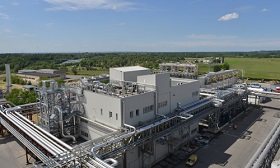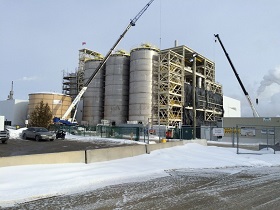Last week, Reverdia and BioAmber announced that they signed a ‘non-assert agreement’. The companies are both involved in the production and commercialisation of biobased succinic acid. They agreed that BioAmber can make use of parts of Reverdia’s Biosuccinium™ technology, ‘in exchange for undisclosed financial consideration’. In our minds, a sound agreement that strengthens the development of the biobased economy.

BioAmber and Reverdia (a DSM/Roquette joint venture) are the world’s leading companies in the production and commercialisation of biobased succinic acid, the first in a series of new platform chemicals that will emerge in the transition from a petrochemical to a biobased chemical industry. This agreement allows the two companies to market their product independently. Customers do not like to buy from monopolistic producers, and producers do not like to enter into a cut-throat competition that will in the end eat up all profits. The best of two worlds, it seems.
But the interesting thing about this agreement is that it centres around a technology transfer from Reverdia to BioAmber, although the press release also stresses that both companies will continue to use ‘their own unique proprietary yeast-based technologies’. Fact is that until quite recently, BioAmber developed a bacterial and not a yeast-based process in their pilot plant in Pomacle-Bazancourt near Reims. Hank Vleeming, a consultant at PDC (Process Design Center) recalls that as late as May 2014, he visited this plant, definitively bacterial-based. ‘The reactors were large steel stirred vessels, and they used two different membranes, I guess ultrafiltration and reversed osmosis.’ Later, BioAmber invested in yeast-based technologies that they bought from Cargill. ‘The benefit of yeast-based processes is that they can operate at a low pH. Bacterial processes need the addition of bases that prevent pH getting lower, and afterwards the addition of acids in order to isolate the product, succinic acid; thus producing a lot of salt as a side product. Yeast-based processes might also be more effective in processing sugars, but this is difficult to tell on beforehand.’

BioAmber from bacterial to yeast-based technology
In 2015, BioAmber completed the construction of a commercial biobased succinic acid plant in Sarnia, Canada, now on the basis of a yeast-based process. As Hank Vleeming says: ‘From the information I gather that BioAmber started developing a bacterial process, but moved over to yeasts because of the benefits, and got in Reverdia’s hair. I guess that BioAmber is better at commercialisation and that Reverdia has the superior technology, and then cooperation or a form of exchange is a logical step that provides a benefit to both.’
The comments of the two parties reflect this state of affairs. ‘This agreement demonstrates that Reverdia’s Biosuccinium™ low pH yeast technology is a leading technology in the field of biobased succinic acid,’ said Marcel Lubben, Reverdia’s President, rather smugly. JF Huc, BioAmber’s CEO, was more modest. ‘In today’s increasingly complex intellectual property environment, the conclusion of this agreement illustrates how two proactive companies operating in the same field can find a constructive solution that allows them to focus on the execution of their respective business plans rather than seeking confrontation and conflict,’ he said. They both believe that the market for succinic acid will benefit from having strong players. In short, the agreement will strengthen the development of the biobased economy. As Marcel Lubben said: ‘By working with partners in the industry, we will speed up the adoption of biobased materials and validate biobased succinic acid as a key building block for the biobased economy.’
